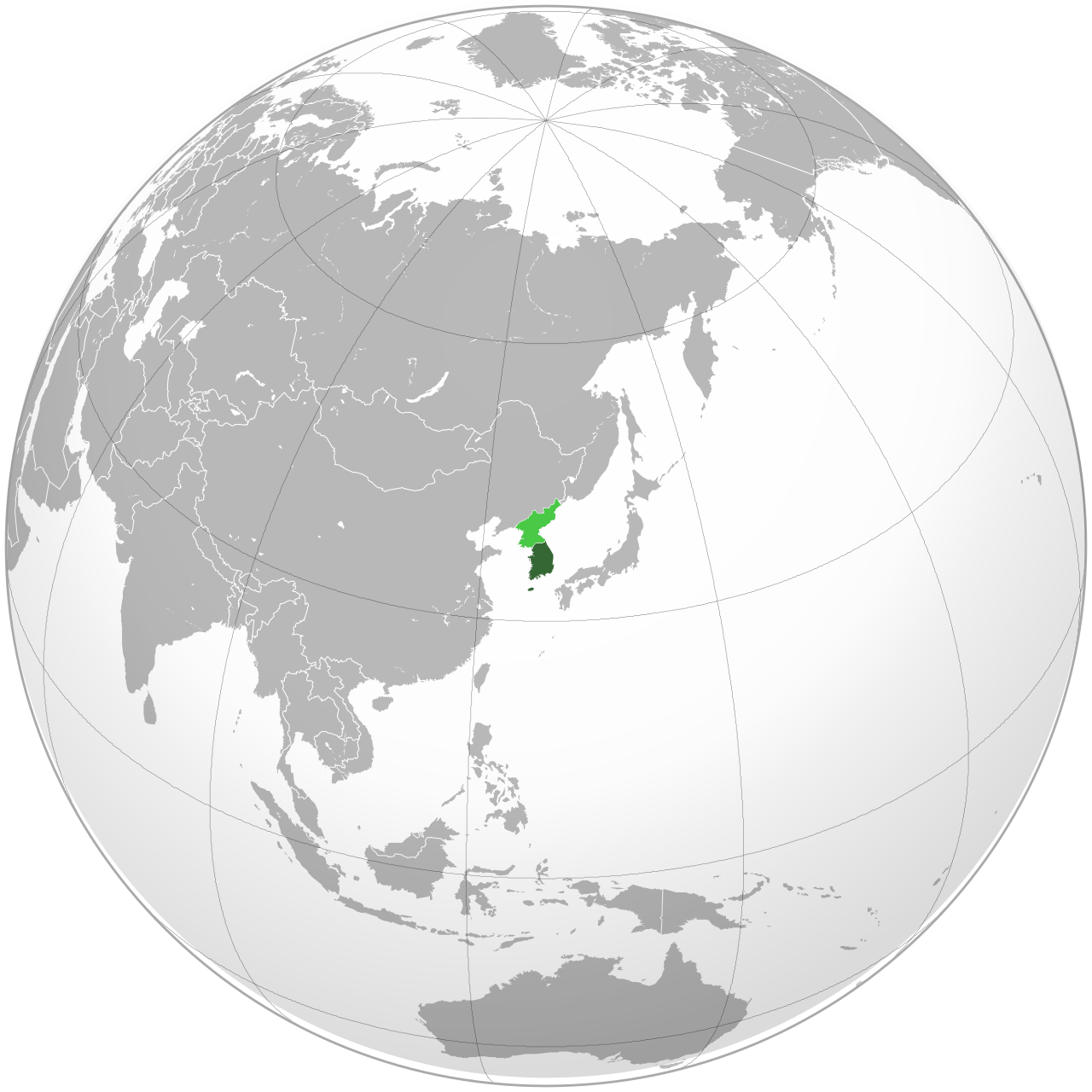This September, my wife and I were in Korea visiting relatives, eating loads of Korean food, and re-connecting with friends. Initially, the idea of going to Korea made me petrified - while I am fluent, I generally avoid speaking in Korean apart from with those closest to me. I felt like I stuttered, and sounded like Jeff Goldblum from Jurassic Park. This trip would, I thought, demand most of my mental capacity to make sure I speak reasonably okay. To my surprise, the trip was so memorable not only because I re-discovered an appreciation for Korean culture, but I gained a better understanding of myself as a Korean in the Western world.
Btw, where is Korea?
To some, (South) Korea as the home of kimchi, the birthplace of BTS, or the designer of your car or cellphone/mobile. For some, Korea is home - for some, like me, Korea is mostly a birthplace, which happens to have my amazing in-laws and distant family. The dark green country is South Korea:

What did I discover?
As an Asian immigrant, I’ve always grown up with two cultures side-to-side. There is a “Korean” side, where I feel there is a need to respect age (or experience), share food, and get ready to perform for entertainment (context: some Koreans love karaoke, or noraebang, and this lends to a culture that applauds charismatic performances. Watch a late night Korean talk/game show and you’ll get what I mean). I always felt these facets of Korean culture were at odds with my “Western” upbringing: the idea of a “flatter” society, respect for the individual, and a tendency to be sarcastic and self-deprecating as a means of “entertainment”.
During this trip, I realised that while I was uncomfortable with some “Korean” behaviours, those same behaviours had similar roots to common Western behaviours, too. For example, the Korean language has a “respectful tense”, known as 존댓말 (roughly pronounced joan-det-mal; the “casual” tense is 반말, or bahn-mal). Effectively, a vastly different vocabulary is used for communication depending on who you talk to (e.g. someone who is older vs. the same age). Some common examples of differences in 존댓말 (respectful) vs. 반말 (casual) include…
| 반말 | 존댓말 | Meaning |
|---|---|---|
| 밥 먹었어? | 식사 하셨어요? | Have you eaten? |
| 잘 자. | 안녕히 주무세요. | Good night. |
| 고마워 | 감사합니다 | Thank you. |
I used to think that this type of language was over-the-top, especially because there was often an awkward exchange of defining how old/experienced you were in order to determine if 존댓말 was more appropriate for communication, etc. However, I realised that speaking to different people using “more respectful” words wasn’t as unusual as I thought it was.
Take French or German, which use tu/vous and Du/Sie to “toggle” between friendly and formal address. Though there isn’t such a feature in English, we wouldn’t exactly chat in the same way to a friend and a boss, and we can intuitively detect some of the nuanced differences in language. Thus, I saw that there is a common underlying principle for Korean and Western languages: respect can manifest in words, and there are variations in how obviously that respect is conveyed.
There are other examples of apparent contrasts in cultures that weren’t truly different, but perhaps this is for another time.
TL;DR
In essence, I slowly began to see parallels between Korean and Western cultures - they weren’t as different as I thought they were, and the apparent contrasts had similar fundamental roots. I learned to be more comfortable and accept the two halves of my upbringing as a positive, than to see it as a clash of identities. This post is not intended to be a social science essay, but reflecting on what I see as what makes us human.
Data science-y question
Being in Korea made me wonder - can we detect “respect” in language using NLP approaches?